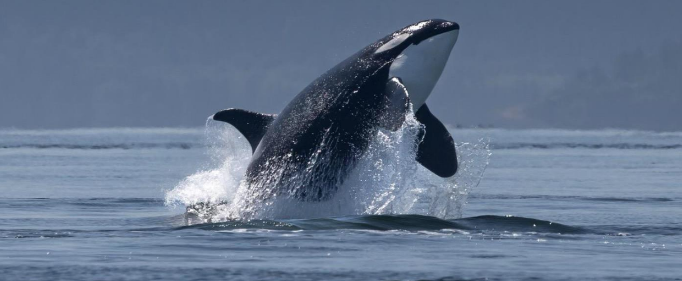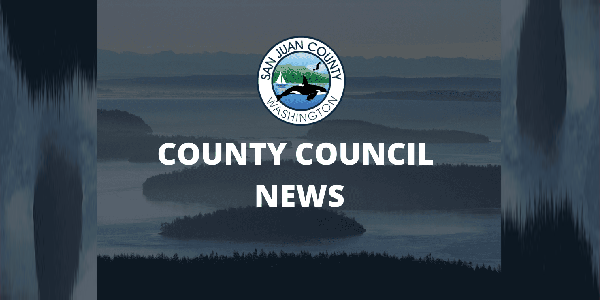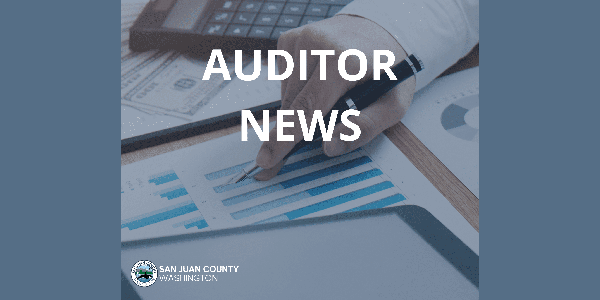||| FROM EMMA HELVERSON for WILD FISH CONSERVANCY |||
A bombshell ruling from Seattle’s federal Court landed Monday evening calling out the federal government for failing to protect endangered Southern Resident killer whales (SRKWs) and wild Chinook by approving unsustainable Chinook harvest at levels that are harming the recovery of both federally protected species.
On Monday, U.S. Judge Richard A. Jones issued summary judgement in a lawsuit brought by Wild Fish Conservancy in March 2020 challenging NOAA Fisheries for authorizing commercial salmon harvest in Southeast Alaska’s Chinook troll fishery at levels that the federal agency admits in their most recent analysis of the fishery are pushing federally protected SRKW’s and wild Chinook closer to extinction. The Court’s order overwhelming agreed that NOAA violated the law by improperly relying on undeveloped and uncertain future mitigation to offset this ongoing harm to species protected under the Endangered Species Act (ESA).
“We applaud Judge Jones ruling that is finally calling into question decades of unsustainable Chinook harvest management in Southeast Alaska and marks a watershed moment for the recovery of Southern Resident orcas and wild Chinook,” says Emma Helverson, Director of Wild Fish Conservancy. “To date, reducing overharvest on the whale’s primary prey is the only scientifically-proven recovery action moving forward that promises immediate access to Chinook for these starving orcas and which will help to recover and restore larger and more diverse wild Chinook these whales evolved to eat which are fundamental for their long-term recovery.”
“While our entire region has been searching for a solution to this extinction crisis, federal fishery managers and our region’s representatives to the Pacific Salmon Treaty have been approving harvest at levels they acknowledge are pushing orcas and wild Chinook closer to extinction,” says Kurt Beardslee, co-founder and Director of Special Projects of WFC. “What’s worse, the only solution they’re willing to consider to solve this problem is producing more hatchery fish which will further harm wild Chinook recovery and which these managers well-know will largely be absorbed by commercial fisheries under a management paradigm that offers zero allocation to orcas.”
In the Southeast Alaska Chinook troll fishery at issue, many people are unaware that only 3% of all Chinook harvested originate from Alaskan rivers, while the majority 97% originate from rivers throughout British Columbia, Washington, and Oregon. As an example, over half of the fish harvested would return to the Columbia River and its tributaries, including the Snake River. If given the opportunity, these Chinook will migrate back down the coast serving as the primary prey for the SRKWs as the Chinook pass through the whale’s key forage areas. Instead, these Chinook are being harvested outside of the range of the whales, regardless of their status under the ESA, and at levels that federal fishery managers acknowledge are unsustainable for the long-term survival and reproductive success of both wild Chinook and the Southern Resident population.
“This is unbelievable news, yet so long in coming,” said Wild Orca’s Science and Research Director, Dr. Deborah Giles who filed a declaration in the lawsuit. “Most fish caught in the Southeast Alaska Chinook fishery are from home rivers in the Southern Resident killer whales’ critical habitat—areas designated by NOAA Fisheries as essential to their survival. The government’s own research has shown that Chinook from Washington State rivers are vital prey in winter, and yet they have permitted these fish to be caught when they’re feeding in Alaska, depriving the whales of the vital nutrition needed to sustain healthy pregnancies, and grow this population.”
“NOAA has failed fishers, salmon, and orcas for decades,” emphasized Beardslee. “Alaskan fishers who follow the rules are not to blame here, the fault lies with fisheries managers and NOAA for consistently approving unsustainable harvest plans. The Court’s order will finally hold NOAA accountable for following the law and adhering to best available science, while shining a light on the systemic failure of the Pacific Salmon Treaty— a win-win for wild salmon, orcas, and coastal communities alike.”
The Court’s order finds that NOAA violated the ESA by improperly relying on uncertain mitigation measures in the form of hatchery production that “lack specific and binding plans, lack specific deadlines or otherwise-enforceable obligations, and are not subject to agency control or otherwise reasonably certain to occur.” The Court further found NOAA violated the ESA by relying on the supposed benefits to SRKWs from increasing hatchery production, without fully evaluating the harm those same hatchery increases will cause to native Chinook salmon populations in Puget Sound, the Columbia River, the Snake River, and the Willamette River. NOAA recognizes hatcheries and associated impacts as one of the top four factors contributing to the decline of wild salmon, along with overharvest, habitat loss, and hydroelectric dams.
Finally, the Court held that NOAA Fisheries violated the National Environmental Policy Act (NEPA) by approving the Southeast Alaska Chinook salmon harvest levels, and by implementing increased hatchery production in Puget Sound and Columbia River to offset those harvests, without any NEPA procedures, which would include
opportunities for public input and an evaluation of alternatives.
In October 2021, Wild Fish Conservancy filed a separate lawsuit against the Washington Department of Fish and Wildlife for implementing massive expansions in hatchery production purportedly to increase prey for SRKW without undergoing legally required State Environmental Policy Act (SEPA) environmental review and procedures.
ADDITIONAL LINKS:
- Summer Judgement (includes adopted report and recommendation)
- Here is a link to a folder with additional legal documents, photos, and other materials related to this case.
Wild Fish Conservancy is a conservation ecology organization based in Washington state and dedicated to conservation, protection, and restoration of the Northwest’s wild fish and the ecosystems they depend on. wildfishconservancy.org. Wild Fish Conservancy is represented in this matter by Kampmeier & Knutsen, PLLC, of Portland, Oregon and Seattle, Washington and by Corr Cronin, LLP of Seattle, Washington kampmeierknutsen.com.
**If you are reading theOrcasonian for free, thank your fellow islanders. If you would like to support theOrcasonian CLICK HERE to set your modestly-priced, voluntary subscription. Otherwise, no worries; we’re happy to share with you.**








This is hardly a bombshell court “victory” … it’s a two page final decision confirming a previous 2021 federal court decision.
We all want wild salmon runs to improve. For many now decades the Wild Fish Conservancy has litigated for dam removals and against fish hatcheries. Dam removal on some rivers is sensible, especially those that have no fish passages and marginal electrical output, the two Elwha Dams being the prime Washington State example.
But with an ever increasing population that consume fish, the WFC’s opposition to fish hatcheries to augment wild salmon populations seems illogical. Hatcheries have a much lower mortality rate than wild salmon. If they were eliminated, commercial salmon fishing would possibly have to nearly stop, and market salmon would almost all be from fish farms, which the WFC also opposes. And don’t confuse salmon farms with fish hatcheries as some try to do … completely different fish production methods and intended use of salmon.
The very detailed and public available data of returning salmon counts by species and runs on the Columbia River have recently been at record levels thanks to salmon hatchery fish as fish passage mitigation for the electrical power producing dams.
Tying SRKW’s lack of hoped for population increases to Alaska salmon harvests is hugely sketchy at best, but this court case rested in mitigation measures (mostly hatchery fish) that the federal judge rules were not firmly funded and locked into a guaranteed program. There are an almost endless number of studies and legal hurdles that virtually everything related to endangered species, no matter how incidentally related, must pass for anything to change. WFC used some of those those to win this case., which give the relatively large Alaska harvest numbers, was not a bad thing. BUT … likely years more of litigation and appeals, and in the end, it’s likely that a “locked into certainty” fish hatchery plan will be the end result, albeit at considerable legal expense to taxpayers.